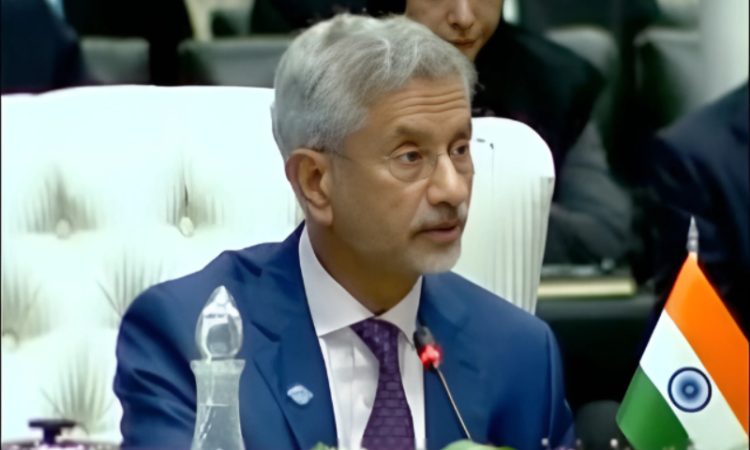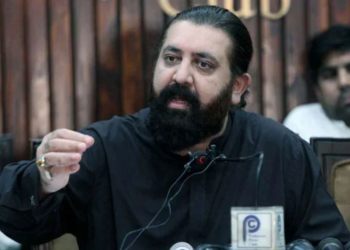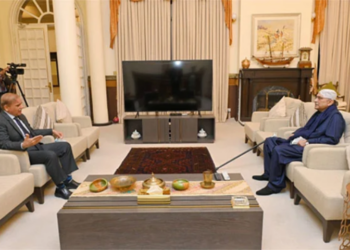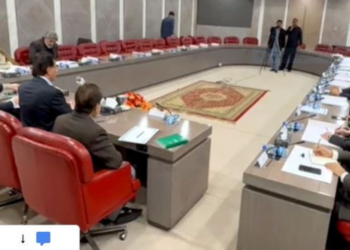Islamabad, October 16, 2024 – Indian Foreign Minister S. Jaishankar, while congratulating Pakistan on assuming the presidency of the Shanghai Cooperation Organization (SCO), underscored the importance of tackling cross-border terrorism and regional cooperation for stability and prosperity. Speaking at the SCO Heads of State Summit, Jaishankar expressed India’s commitment to supporting Pakistan’s leadership during its term and emphasized the need for collective action to address global challenges.
Jaishankar noted that the world is grappling with complex challenges, including two major conflicts with far-reaching global consequences. He emphasized that the aftermath of COVID-19, severe weather events, supply chain disruptions, and financial instability have significantly impacted the progress of developing nations.
The Indian foreign minister highlighted that rising debt burdens are a critical issue and that many countries are falling behind in achieving sustainable development goals. He stressed the need for candid dialogue and self-reflection, urging nations to assess their shortcomings in fostering trust, friendship, and good neighborly relations.
Jaishankar remarked that the world is shifting toward a multipolar system, where globalization and balance are inevitable. These changes, he explained, present opportunities in trade, investment, and connectivity that could greatly benefit the region if leveraged effectively. He emphasized that regional cooperation must be based on mutual respect, sovereignty, and equitable partnerships, not unilateral agendas.
He further stressed the importance of peace and stability for regional progress, which, he argued, requires a strong stance against terrorism, extremism, and separatism. “As long as cross-border terrorism, extremism, and separatism persist, it will be difficult to promote trade and people-to-people contact,” Jaishankar warned, calling for collective action to address these threats and realize the region’s full potential.
Jaishankar also underscored the significance of enhancing industrial cooperation to boost competitiveness and create jobs, particularly through collaboration among micro, small, and medium enterprises (MSMEs). He highlighted the potential for collective efforts to increase resources, investment, and networking opportunities within the business community.
He identified logistics, energy, environmental protection, and climate change as areas ripe for collaboration. He also noted that affordable and accessible medicines could improve healthcare outcomes for communicable and non-communicable diseases. Additionally, joint efforts in health, food, and energy security could yield significant benefits for all.
Jaishankar emphasized the importance of India’s global and national initiatives within the SCO framework, such as the International Solar Alliance’s promotion of renewable energy, the Mission LiFE’s advocacy for sustainable lifestyles, and the Global Biofuel Alliance’s role in advancing energy transitions. He also pointed to India’s work in protecting biodiversity through the International Big Cat Alliance, as well as its achievements in digital infrastructure and women-led development.
On the topic of global governance, Jaishankar reiterated the need for comprehensive reforms in the United Nations Security Council (UNSC), calling them increasingly urgent. He referred to the July 2024 Astana agreement, which acknowledged that the credibility and effectiveness of the UN depend on fair representation for developing countries. Jaishankar urged the SCO to take a leadership role in pushing for UNSC reforms, as highlighted by global leaders at the recent UN General Assembly.
In his concluding remarks, Jaishankar stressed that the SCO represents forces capable of driving global change. He expressed that the world has high expectations of the organization and called on member states to fulfill their responsibilities by exploring new opportunities for enhancing cooperation and delivering meaningful results.









